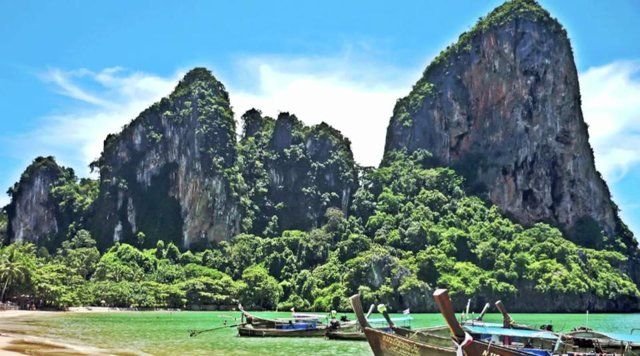In the 21st century, the greatest luxury is not a designer watch or a fast car; it’s freedom. For a particular class of men, the kind who build and think for a living, this freedom is found not in a national passport, but in an international one. They are the new pioneers, and their frontier isn’t an untamed wilderness, but a civilised world where the old, stifling rules no longer apply. This is geo-arbitrage, and it is far more than an economic strategy. It is the ultimate expression of personal sovereignty.
For too long, the implicit bargain of a high-powered career in the West has been a life of high cost, high stress, and diminishing returns. Men were told to trade their best years and their highest taxes for the promise of a stable society, a thriving culture, and a family that would honour their efforts. But that bargain has been broken. The promise has soured, and what’s left is a society that offers little in the way of social cohesion or traditional values in exchange for a staggering cost of living. The smart money, it turns out, is leaving.
Geo-arbitrage is simply the act of earning a strong, Western wage and spending it in a country where the cost of living is significantly lower. But the real gain is not merely financial. The real arbitrage is in the culture. It is the trade of a life of constant cultural tension for one of respect, of transactional relationships for traditional ones, and of bureaucratic bloat for simple, pragmatic efficiency. This is a move not of desperation, but of calculated intellect, a conscious decision to reclaim one’s time, one’s purpose, and one’s life.
The Economic Imperative
For decades, the implicit economic bargain in the West was a straightforward, if brutal, one: you would pay exorbitant taxes and suffer a crushing cost of living in exchange for a career that could only be pursued in a handful of global cities. This was the cost of entry, the price of access to capital, talent, and opportunity. But with the advent of remote work, that contract has been voided. To continue paying a king’s ransom for a life of diminishing returns is no longer a sign of success; it is a sign of a lack of strategic thinking.
The modern geo-arbitrageur understands this. He looks at a monthly budget and sees not expenses, but a series of broken promises. He sees a significant portion of his income vanishing into taxes that fund a state he increasingly distrusts, a housing market that is more asset bubble than home, and a society that offers little in return. In a developing economy, that same income provides a staggering return on investment: a higher quality of life, far greater purchasing power, and a direct path to wealth accumulation. The capital that was once tied up in simply surviving the West is now free to be invested, to grow, and to provide true financial independence. It is an act of reclaiming one’s economic sovereignty.
The Social Contract and its Failures
While the economic equation is compelling on its own, it’s merely the starting point. The deeper arbitrage is social. The high-status Western man, earning a fortune from his laptop, is often left to navigate a cultural landscape that offers little in return. The social contract, once an unspoken agreement of mutual respect and clear roles, has fractured. It is a world that has, in many ways, pathologised masculine virtues and offered a transactional, often hostile, environment in place of a supportive community.
The flight from the West is, therefore, a strategic move to opt into a new social contract. It is a conscious decision to seek out cultures where a man’s role as a provider and protector is not only accepted but celebrated. The respect that is often difficult to earn in a Western city is readily given in places where traditional values still hold sway. The relationships are often clearer, the expectations more defined, and the sense of purpose more tangible. This is not a retreat from reality; it is a pragmatic adjustment to it. These men are not running away from the world; they are running towards a world that still knows how to value them.
Building the New World
This, then, is the new frontier. The man who pursues geo-arbitrage is not a tourist; he is a pioneer. He is not running away from the world, but from a specific, failing ideology. He is leaving a system that demands his capital and his allegiance in exchange for a life of diminishing returns. He is actively choosing to build a new life in a place where his contributions are valued, his masculinity is respected, and his freedom is not seen as a threat, but as a virtue.
This is an act of creation. It requires the courage to challenge a decades-old narrative and the discipline to build a new life from the ground up. This is the ultimate expression of personal sovereignty, a move not of desperation, but of calculated intellect. It is the conscious decision to reclaim one’s time, one’s purpose, and one’s life. The new world is not waiting to be discovered; it is waiting to be built, one sovereign man at a time.













